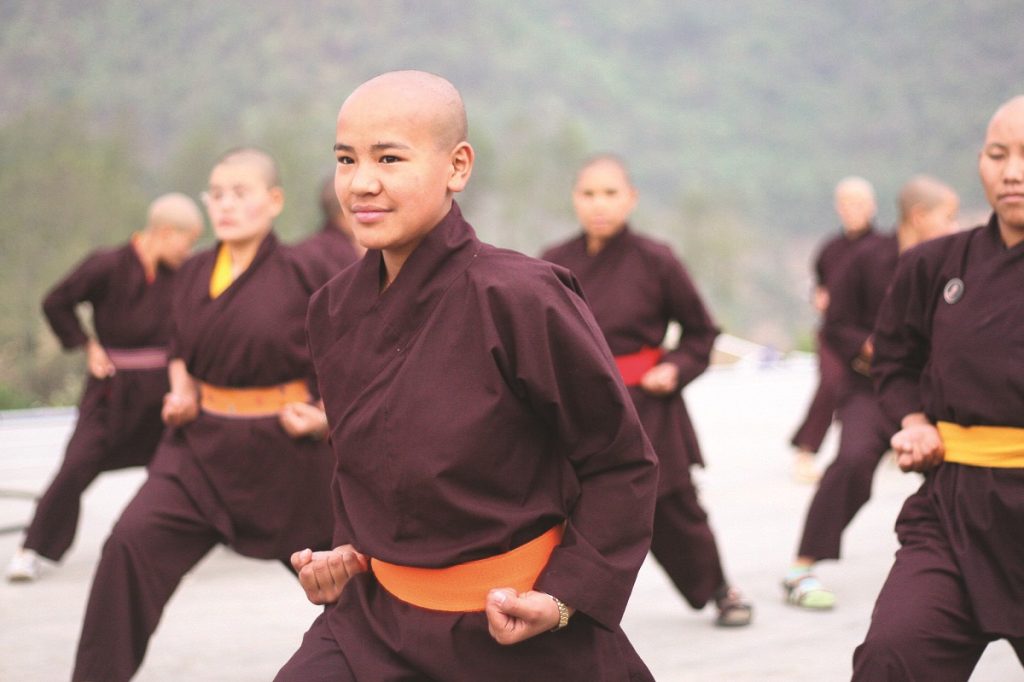I come from a part of the world where ethnic and religious minorities must navigate extremist elements, geopolitical instability, and limited resources. We know about uncertainty, survival, and fear. I’ve seen many of my own friends base decisions on fear; I’ve seen communities torn apart by it. I’ve seen fear creep into different crevices of peoples’ lives and politics. Fear thrives in the absence of mutual understanding and diversity, and it is a poisonous weapon. But there is an antidote: compassion. Compassion combats fear.
In my religion, we believe in karma. Many people misunderstand the concept of karma. Karma is not a pre-determined destiny. Karma does not mean we accept injustice or inequality. Karma just means cause and effect. Karma means we are empowered to be part of the solution. Karma gives us a method to combat fear, terror, injustice, and inequality. Karma means that we are not defined by our situation but rather by the choices we make.
As a believer in karma, I encourage the world to choose courage and compassion. Far too often we wait for leaders and governments to bring us peace. But think about it: it is individuals who build peace. And when individuals build peace, it is strong, it is lasting, and it is genuine. That does not mean that we sit nicely on a meditation cushion and enjoy our own inner peace. Peace requires action. Peace requires a real sense of urgency. Peace requires courage and hard work. Peace means that each and every one of us has an obligation to build mutual understanding and an obligation to reject fear. Peace requires us to not only accept but to celebrate the differences among us. Fear needs us to reject differences. Peace encourages us to embrace differences.
Related: Facing Fear
The nuns of my lineage, often known as the Kung Fu Nuns, are great examples of that courage. In my part of the world, nuns are not afforded much opportunity for education or leadership. However, the nuns of the Drukpa Order take on real leadership roles and responsibilities within our community. They learn to work with each other even though they come from different countries and speak different languages. The nuns are learning Kung Fu as a means to instill physical and mental confidence, breaking centuries of tradition. After the Nepal earthquakes of 2015, for example, the Kung Fu Nuns delivered medical and relief supplies to some of the hardest hit regions. They traversed mountainsides and river-rafted to help Nepalis of all religions and backgrounds. They rejected fear and chose courage instead.
In light of all the violence in the world, the Kung Fu Nuns and I have embarked upon a bicycle journey from Kathmandu to Kashmir to celebrate diversity and build mutual understanding. In Ladakh, where many of my nuns come from, there is a long history of diversity. Located along the Silk Route, the people of this community celebrated different religions, languages, ethnicities, and traditions. They know that these differences do not fracture us. Diversity strengthens us. Diversity is not something to be tolerated—it is to be celebrated. We should welcome it with curiosity, delight, and joy. This is what fear fears. While cycling is a small gesture, I hope we serve as an example of how women, religious leaders, and individuals from all communities have a role in peace building. You also have a role in peace building. Some of you have a large platform and can speak out for others who are not heard. Some of you are not in public service, but may make a big difference in your work place, in school, or at home. Every one of us can create an immediate impact and can build peace.
(These remarks were given by His Holiness the Gyalwang Drukpa to the Bucerius Summer School on Global Governance in August 2016.)
[This post was first published in 2016]
Thank you for subscribing to Tricycle! As a nonprofit, we depend on readers like you to keep Buddhist teachings and practices widely available.
